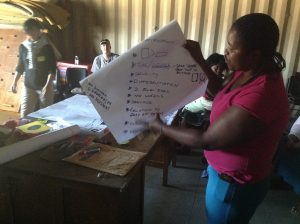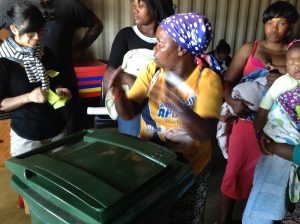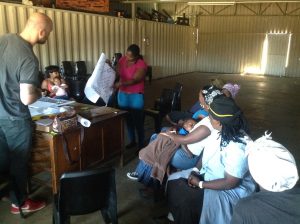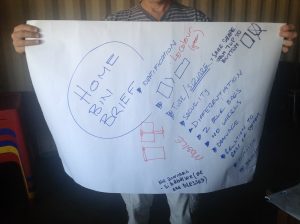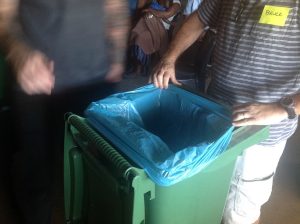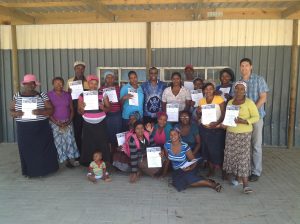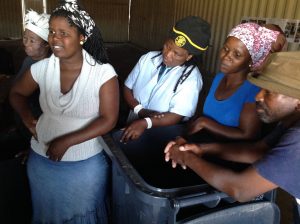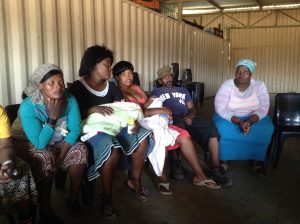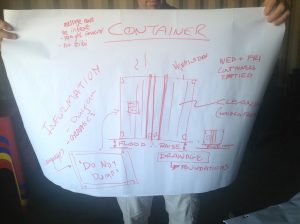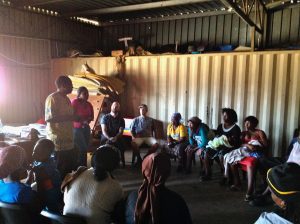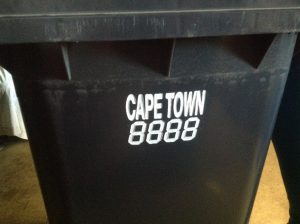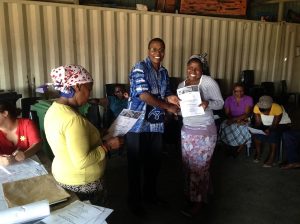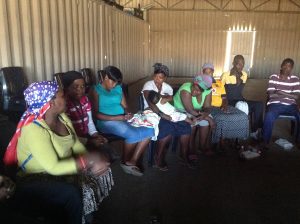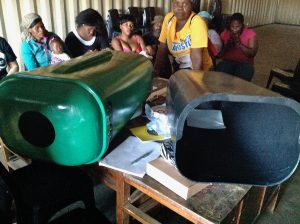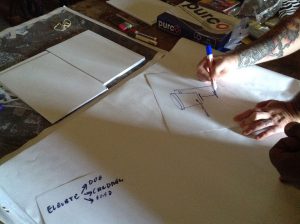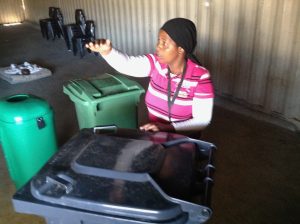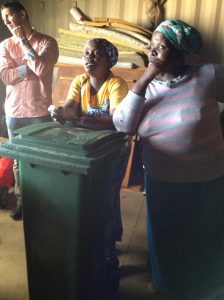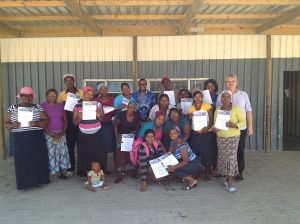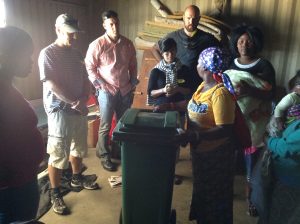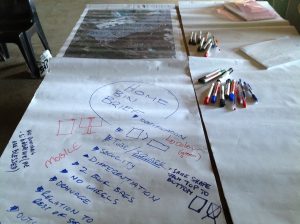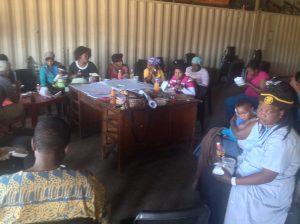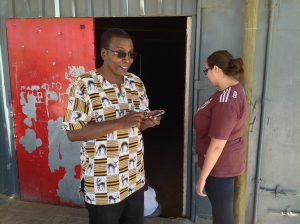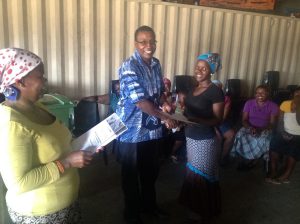PILOT PROJECT: DESIGN STRATEGIES FOR ENHANCING SERVICE DELIVERY IN SOLID WASTE MANAGEMENT AT DOORNBACH, CAPE TOWN
Report on Community Design Workshop and Exploratory Design Proposals
COMMUNITY DESIGN WORKSHOP: WHAT WE LEARNT:
People use improvised plastic buckets for the blue bag (typically 20m litre capacity ones), there is space only for one bag at a time, and typically, if it rains the residents make holes at the base of the blue bags in order to allow water to go drain through them.
When the plastic bucket is filled up prior to the house-to-house pick-ups by the designated contractors, the residents deposit the blue bags to the container on their own. Generally speaking, this is not a problem during the day because the containers are open and accessible. However,
in the early mornings and evenings when the containers are clocked, the lack of access leads to dumping near or at the container (or other locations in close proximity to the households). This causes littering and poses a health and safety hazard as children and pets may have access to the solid waste in the blue bags.
The research team also discovered that the residents are often unaware of the communication by the Solid Waste Department (like Zibi mascot). Only the community leaders are aware of the rules on the collection schedules of solid waste and how the system works. Generally the people seem unaware of the hazard of leaving the blue bags at or near the closed containers that they consider to be perfectly normal.
The containers are cleaned twice a week, but no provision is given to the draining off of the run-off water – this often exacerbates the corrosion. Additionally, some of the residents complained that the waste in the plastic bucket is often collected before the blue bags are completely full. There were mixed responses around the number of blue bags allocated to the households – some felt that they were adequate (at two bags a week per household) whilst others felt that they should receive additional bags in view of greater demand (either because of having more members
in their households, or where small babies were resident). It is recommended that this matter be taken up directly between the Department of Solid Waste Management and the Doornbach Community members (or their recognised representatives/community leaders).
